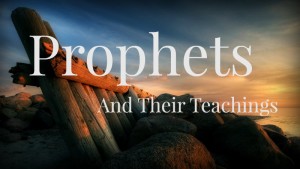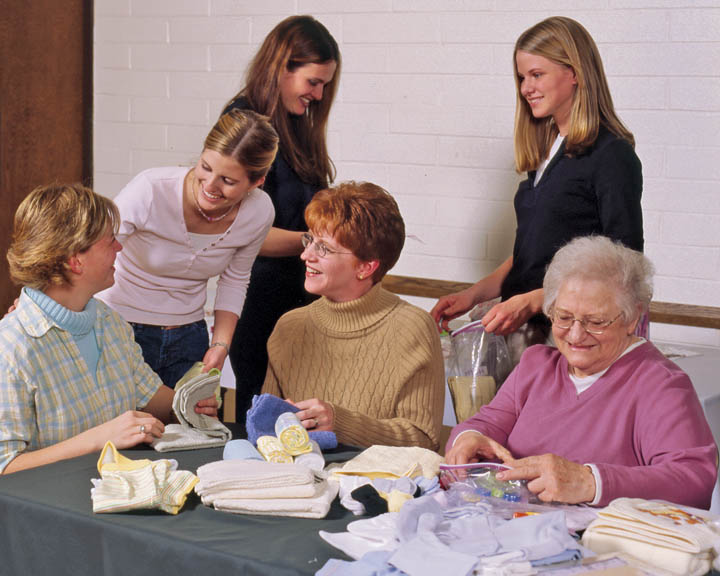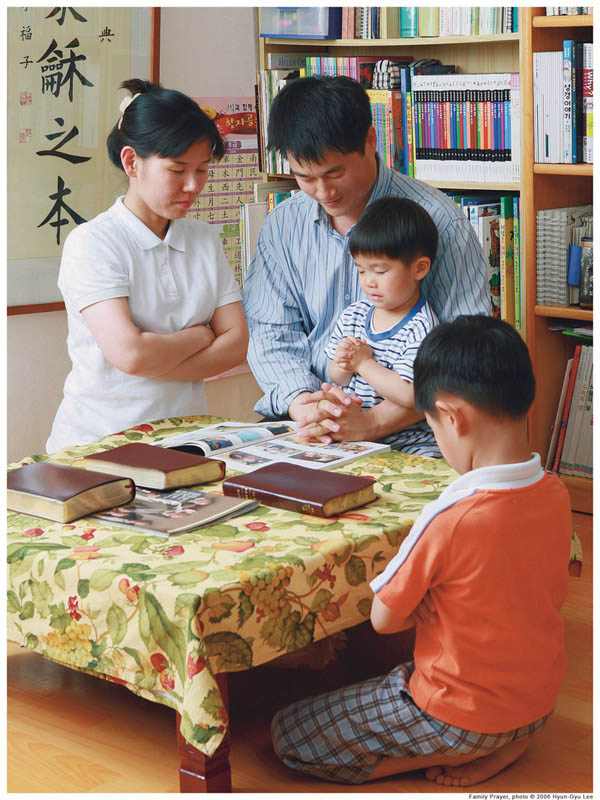This article was previously published on Mormonbasics.com
This is a personal observation and musing on the differences between how we see and treat births and deaths in our culture. It is not so much doctrinal as it is a private perspective brought on by a recent funeral.
Background
My daughter married into a new family a few years ago. Recently her husband’s grandmother passed away and they came and stayed with us while attending the funeral. My wife and I went with them. We sat with the grandchildren while she tended to the needs of her husband. All in all it was a very good experience.
While sitting in the chapel before the meeting actually started, I leaned over to my wife and observed that I thought it was interesting that births are very lonely events, while deaths are close to public spectacles in comparison. She suggested I think about it and try writing down my thoughts on the matter. Here goes.
Birth
When a couple has a baby it is a very private affair. Beforehand there are congratulatory remarks, baby showers and preparing for the arrival of the new member of the family. Everyone is happy for the couple as anticipation mounts for the joyous event.
 It used to be that one never knew if it was a boy or a girl. You just had to wait until the baby was born to know what you had. Now you find out early on in the pregnancy, and you have several months to prepare for the gender of the baby. There is far less buying of yellow and green clothing, not knowing if it is a girl or a boy. Now everyone just jumps straight into the color category of their new child.
It used to be that one never knew if it was a boy or a girl. You just had to wait until the baby was born to know what you had. Now you find out early on in the pregnancy, and you have several months to prepare for the gender of the baby. There is far less buying of yellow and green clothing, not knowing if it is a girl or a boy. Now everyone just jumps straight into the color category of their new child.
When the family is just beginning to grow there are so many things that need to be acquired. You have to get the mandatory car seat, bassinet, crib, diaper bag, and a thousand other objects. Your whole life is about to change with the addition of this new member of the family. A bedroom has to be devised or set up for the new arrival, and if there are other children already in the family, they have to be prepped and readied as well.
Everyone adjusts to mom’s first trimester sickness, her growing belly, hormonal adjustments, and restrictions in activities as she nears the end of her time carrying her new child. Menus change and household responsibilities are shuffled around to accommodate the needs of Mom. Everyone you know gets notified of the impending birth, and everyone settles in to await the announcement of when the baby is born.
Yet with all the well wishes, parties, planning, and preparation for the new baby, the actual birth is a very private thing. It is just the mom and dad and hospital staff, midwife, or doula. Unless you know you have to schedule a C-section you only know approximately when the baby will be born. Every day is lived in anxious anticipation of the blessed event.
Names are chosen, but not usually assigned until the baby actually is born. Great care goes into choosing the name by which they will be known throughout their mortal life. Everyone has an opinion on an appropriate name, but often the name is not officially chosen until days or weeks after the baby is born and the parents feel like they have found the perfect fit.
Even after the baby is born, people tend to stay away for a while. Mom is recuperating, if people come over it is to drop off some food and leave. Some who are close to the family may come in and do some cleaning or cooking, but they scurry off quickly as well. Mom and Dad need time to get acquainted with their new family member.
Over time the new child becomes part of the fabric of the family. All the milestones are observed and mentioned on social media. Pictures are taken and posted or put into scrapbooks, and eventually, the novelty wears off and the child is absorbed into the group identity of the family. There is a newness of a newborn child. We don’t know what their personality is, how they will react to their environment or our teaching, or even our neglect. Everything about that child still lies in the future.
Death
Death isn’t like birth. A deliberate act sets into motion the eventual birth. You might say that same act also starts the child on the path towards death as well. Death steadily creeps up on a person from the day they are born. Often there are surprises, like accidents or disease that carries someone away before we have a chance to even wrap our heads around the event. I would like to focus on death in old age.
 Once we pass our prime we begin to see death off in the distance ever so slowly inching his way towards us. We start to creak and crack where once there was only smooth movement. We become sensitive to foods, temperatures, and weather conditions. Bones start to hurt, and we don’t heal as quickly as we used to. Our sleep patterns get thrown completely off. In short, over time, everything changes.
Once we pass our prime we begin to see death off in the distance ever so slowly inching his way towards us. We start to creak and crack where once there was only smooth movement. We become sensitive to foods, temperatures, and weather conditions. Bones start to hurt, and we don’t heal as quickly as we used to. Our sleep patterns get thrown completely off. In short, over time, everything changes.
But what happens to us when it is time for us to leave mortality? Sometimes we have a disease that is contracted and we have either a long time or a short time, but almost always we have some time to prepare for our departure. Sometimes we don’t see death coming. One day we are reasonably well then we get sick and much to everyone’s surprise, we die from some odd complication. Some are lucky enough to last into their nineties or beyond, while others die decades earlier.
The funeral
Compare the social aspect of a birth with the social aspect of a funeral. Compared to births, funerals are pretty public. But unlike the novelty and celebration that usually surrounds a birth, there is usually great sadness and sorrow surrounding a death. Death brings with it gatherings, just like births, but they are of a different character.
The gatherings we have at someone’s death focus not on the anticipation of what that new life will be like, with all its possibilities, but around a review of what was accomplished in the course of our departed loved one’s life. In the funeral we attended with our daughter and son-in-law, the most memorable part was the eulogy, the recap of the grandmother’s life.
Almost nothing was mentioned about her career. I’m not even sure if it was mentioned. But there was story after story about her as a person. It was fascinating to see what was important in their lives. What was important in their lives was remembering what was important in their mother’s life, them!
They recounted numerous stories about her kindness, goodness, courage, her teaching moments, or sacrifices for them, and her love for the gospel of Christ and how she demonstrated her devotion to the Savior and His teachings over and over again during her life. Her former Bishop spoke and all his stories centered around their willingness as a couple to sacrifice for the welfare of others before they looked after their own needs. As a family they served tirelessly to clean the chapel, for example, even before their own home was finished being built. They put their Church service first in their lives.
Her children told of a story about a time when they brought – completely unannounced – a boy up to their mother and told her he didn’t have a place to live, and could they bring him into their home. Her response was immediate and without hesitation, “Welcome home.” She had a big heart.
The funeral was attended by very few members of her ward. That could have been due to a number of reasons, but her family filled the entire center section of the chapel, with some of us sitting on the side benches. As I watched her children interact with those who attended the funeral I noted that there were some similarities in behavior.
 After the funeral one of her daughters came up to us and told us that she would be hurt if we didn’t go to the cemetery with them and then to the luncheon afterwards. Another daughter told us how pleased she was that our daughter had married into their family. She hoped that we liked them because we were now part of the family and there was no getting out of it. She spoke in the most loving terms possible. We were greeted by at least half of the grandmother’s surviving children. All of them behaved just as they had spoken so lovingly about their mother.
After the funeral one of her daughters came up to us and told us that she would be hurt if we didn’t go to the cemetery with them and then to the luncheon afterwards. Another daughter told us how pleased she was that our daughter had married into their family. She hoped that we liked them because we were now part of the family and there was no getting out of it. She spoke in the most loving terms possible. We were greeted by at least half of the grandmother’s surviving children. All of them behaved just as they had spoken so lovingly about their mother.
Births and Deaths
Births are filled with hopeful anticipation. Death is filled with reflection and review. I dare say that this good woman’s day in judgment will be pretty similar to her funeral, filled with expressions of love and devotion to family and God.
There is a tinge of fear in birth. We never know ahead of time if the baby will be born alive or dead, healthy or challenged for life. There are so many unknowns in birth.
Death is the termination of a lifelong effort to become. What we become is either something we are surprised with because we gave it no thought, or we become what we chose to become because we spent our lives in purposeful living, working to eliminate our weaknesses and exercising faith in God to make our weaknesses into strengths. Hopefully, when we say our last farewell in mortality it is as the person we always wanted and hoped we could become.
The physical conditions under which we leave mortality aren’t nearly so important as the condition of our soul is when we leave. Have we sought for forgiveness? Have we worked to live a Christlike life. Did we develop the virtues of godliness that possessing charity demands? Are we leaving behind many whom we have learned to love because we have served them faithfully? Have our priorities in life been the welfare of others?
Final Thoughts
We may have a period of time before we are allowed to leave mortality when we are not at our best physically. Most of us will leave in some degree of diminished capacity. But when we leave mortality we will only be able to take with us the personality we have developed while here. We can’t take with us any physical capabilities, physical objects, no money, no prestige, no social ranking. All we walk through the veil with is who we have become. The rest of what used to make up our life is left for someone else to deal with.

To read more of Kelly Merrill’s articles, click here.
I am left with these questions. What do I want to take with me to the other side of the veil? Will I be able to learn to let go of my love for praise, applause, recognition by those around me, and learn to be content with the pleasing sense of having made my Father in Heaven happy? Will my children and family members remember me as one who lived a virtuous life or will they remember the selfish or neglectful things I did?
It boils down to this. We each choose how we will enter eternity to report on our time in mortality. Whether we were weak and incapacitated for a few years before we go or whether we are taken quickly is immaterial. Our character is all that goes with us into eternity.
Kelly Merrill is semi retired and writes for https://gospelstudy.us. He lives with his wife in Idaho. His strength is being able to take difficult to understand subjects and break them down into understandable parts. He delights in writing about the gospel of Christ. Writing about the gospel is his personal missionary work to the members of the Church and to those of other faiths who are wanting to know more about Christ’s gospel and His Church.






